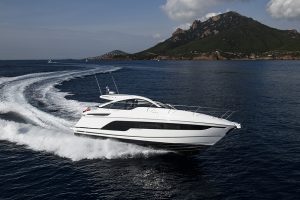Petrol vs diesel engines
Faced with the choice of petrol or diesel, be realistic. Diesel engines have a reputation for greater reliability and safety, and at present for far cheaper fuel costs, but are a great deal more expensive in the first place
Capital and running costs
Settling the petrol vs diesel question can add several thousand pounds to purchase price, but on the second-hand market petrol-englned boats can be difficult to sell when there are diesel alternatives about.
Diesel fuel is currently considerably cheaper than petrol for boat owners in the UK, because we are allowed to used red-dyed diesel, which attracts a far lower rate of tax than ‘white’ diesel, as used in road vehicles.
But under EU tax harmonisation rules we will lose this concession at the end of 2006, unless the gathering campaign to keep it is succesful. Diesel engines are also arournd 20% more efficient than petrol engines in terms of the quantity of fuel they consume per horsepower.
But you would have to run a petrol-engined boat for ten years or more at average use to spend, in extra fuelling costs, the money saved in capital costs.
Noise and smell
These are two areas in which petrol engines score over diesel: they are quieter running, while diesel fuel, if you should get some on your clothes or on the boat’s carpets or furniture, has a very unpleasant smell and is difficult to wash out.
Reliability
Given a clean supply of fuel, diesel engines do have a better reputation for dogged reliab ility than petrol engines.
On the other hand, don’t expect to get very far when trying to start one if the batteries are in poor condit ion. Pre-heat systems and heavy-duty starters draw a hefty current.
Damp salt air can have a debilitating effect on a petrol ignition system. In engines fitted with carburettors, other problems can include reluctance to start, rough idling when cold, and stalling when idling, especially when put in to gear while driving auxiliaries such as a power-steering pump.
Safety
Petrol is more flammable than diesel and the vapour that it readily gives off is heavier than air, so can settle unnoticed in the bottom of a boat, with potentially explosive consequences.
You need to take sensible precautions when fue lling (no naked flames, nothing that makes a spark) and before starting up (checking for petrol fumes and running the blower, if fitted, to extract any petrol vapour).
Availability
The rarity of alongSide fuel berths selling petrol also helps to swing the balance in favour of diesels, particularly if you are undertaking any long-distance cruising.
Originally published in Your Motor Boat 2004









